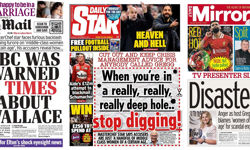
In the US, the obvious first question for our industry in 2017 is how far the new president will go in regard to bullying behaviour toward the media.
The second: How many media outlets will refuse to cave or suck up if threatened with social media intimidation, or overt or covert encouragement of boycotts, or perhaps even legally flimsy but well-backed defamation lawsuits – à la the retaliatory model employed in the Peter Thiel-backed Hulk Hogan suit that brought down Gawker Media.
Gawker’s tabloid sensibilities and frequent recklessness made it hard to want to rush to the defence of owner Nick Denton – who in any case ended up negotiating a $30-million settlement to avoid the jaw-dropping $115 million in damages awarded against him by a jury. But the fact that a jury issued that decision in a case where legal precedent in the US in relation to free speech about public figures should have made this suit untenable, is scary. Lest we forget, back in the late 80s, magazine publishers, through MPA, were among the press groups that held their noses and filed briefs in support of Hustler publisher Larry Flynt when he was sued for libel by fundamentalist televangelist Jerry Falwell – a case famously decided in Flynt’s favour by the Supreme Court. The mainstream press rightly felt compelled to defend our First Amendment, and in particular the high threshold of free speech in relation to public figures set by the Supreme Court’s 1964 decision in New York Times Co v Sullivan.
Post-election, as of late December, we’ve seen media including The New York Times, The Washington Post, The Daily Beast (which declared it will be “the loyal opposition” to the incoming administration), Vanity Fair (thanks, Graydon Carter – most recently for your “Only in America” editor’s letter) and small-but-feisty Mother Jones and Harper’s continue to raise tough issues and strive to shed some light on the murk. Meaning the business interests and relationships with Russia and other foreign powers of Trump and proposed cabinet members, which obviously pose dangerous conflicts of interest for our country.
On the other hand, we’ve also seen reporters from major news outlets (including the NYT, as well as NBC, MSNBC, Bloomberg News and others we may never know about) agree to an off-the-record (!) pilgrimage to Trump’s Mar-a-Lago lair to be feted and “spun” by the Orange-Haired One, then try to rationalise their behaviour. We’ve also seen public figures who had been vocal critics of Trump make nice with or even apologise to him after the election – including Amazon chief and Washington Post owner Jeff Bezos, and Vogue editor-in-chief / Condé Nast artistic director Anna Wintour.
Also, although Trump turned on New Jersey governor Chris Christie after the election, shunting him for posts in the new regime, we’re now seeing how the retaliatory dirty-tricks mentality that (a jury found) inspired Christie’s then-aides to clog traffic on the George Washington Bridge (“Bridgegate”) might be applied to the media. Christie is currently attempting to get a bill passed in his state that would devastate one of newspapers’ remaining revenue sources by allowing public notices to be published online, instead of in newspapers. (While the existing NJ law requiring notifications in print media may be arguable, trying to use legislation in the service of personal vendettas is not.)
Again, for average citizens, one way to make some difference is by choosing to read and pay for those media that continue to practice real investigative journalism and speak out when that is called for. Which is likely to be pretty much every day of the next four years.
Magazine media – key questions
Turning specifically to the magazine media industry, some of the key questions currently in play for the year ahead include:
* Will Time Inc be acquired? Like the election, the only response to this potential scenario is: Say it isn’t so. Well, I guess the least scary scenarios might be an actual publisher, like Meredith, in charge of Time Inc’s iconic brands, or Time Inc selling off some selective properties to fund its ongoing digital transformation. New CEO Rich Battista should be given a reasonable opportunity to pull that off. But given the level of short-term thinking and greed in today’s business world, he’ll have to work fast and talk a very good game to ward off activist investors.
* Will publishers manage social media platforms to their benefit, or end up as road kill? There are at least a few examples of what appear to be successful (financially beneficial) social platform strategies, including The Economist and Atlantic Media. But not a few publishers still seem to be grasping at every social “opportunity” that promises some short-term traffic or ad revenue, then complaining that the revenue is disappointing.
More ominous, however, is that Facebook has now confirmed what everyone knew was coming at some point, by revealing its first efforts to go beyond distributing content, to directly fund and own content, starting with videos. Forbes contributor Howard Homonoff recently advised that legacy media take a vigilant “frenemy” stance, and that advertisers consciously try to foster the existence of media options beyond the giant platforms. Unfortunately, any meaningful counter-balancing efforts are little in evidence to date.
But wait! A vigilant government should be able to stem the platform behemoths’ rise as media players, on antitrust and public interest grounds. (Do we really want to let Facebook and other leading “fake news” enablers become dominant news content generators? Before you answer, remember that we also thought that Trump becoming president was impossible.) Alas, we’re now captives of an administration that considers it a fine idea to put Carl Icahn in charge of “reforming” regulation of Wall Street and the economy… among other bizarre, alternate-reality leadership choices.
Happy New Year.












